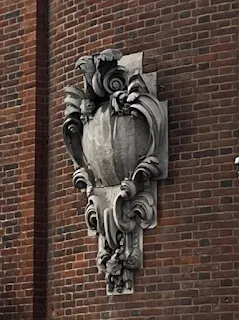Obligatory festive blogpost 2:
The often sung carol "The Twelve Days of Christmas" chronicles a person's increasing dissatisfaction with being given the same gifts day in, day out, ranging from birds to people. It's been around for nearly 250 years, with music added by composer Frederic Austin back in 1909 which creates the carol known today.
Three questions could arise from the carol:
- Does the person actually receive twelve partridges in a pear tree, as well as forty golden rings? Or is it just one partridge and five rings? (The summation question)
- How does the person's true lover have that much money?
- What are these twelve days? I thought Christmas ended when John Lewis said it did.
I'll focus on the third question, because the previous two have simple answers - yes, and it's metaphorical. Here goes:
In Christianity, the obeying of Christmas Day occurs on the 25th December, and the obeying of Epiphany occurs on the 6th January - that's a gap of about twelve days, and is what marks the Christmas period - hence the twelve days. But why twelve? Surely Christmas should be marked by one day and it should be left as that - after all, Jesus' birth didn't occur over twelve days.
And what actually occurs on each of those twelve days? This is a look at the liturgical meaning of each day, specifically in reference to Western Christianity - some of the dates may vary depending on denomination:
Christmas Day - day 1: This is the day when Jesus is said to have been born. However, it's never been as clear cut as one might expect it to be - after all, Jesus is said to have had a humble birth, so one wouldn't expect it to have been recorded exactly. Seemingly, the date was agreed upon when Christianity was becoming popular in the Roman Empire, and perhaps the day was meant to correspond with a Roman holiday known as the "day of the birth of the unconquered sun", in other words a celebration of the winter solstice. But no one knows for certain.
Day 2 - It's popularly known as Boxing Day in the UK, a celebration of when shops decide to slice the prices of their products. Or another bank holiday - your choice. The reason why it's called Boxing Day is as the day would see gifts be given to workers. Liturgically, it's also St Stephen's Day, a feast day in honour of the titular saint who became one of the first Christian martyrs.
Days 3 to 6 - From the 27th December to the 30th, days seem to blend into one lengthy period when people are waiting for the year to end. Liturgically, however, each day is somewhat distinct:
- The 27th is a feast day in honour of St John the Apostle;
- The 28th is remembering the Massacre of the Innocents which refers to when King Herod saw many newborns killed due to him being concerned about Jesus' birth (an event some doubt if it occurred, but the newborns are recognised as the first martyrs);
- The 29th is a feast day in honour of St Thomas Beckett, who died due to King Henry II being annoyed by him and;
- The first Sunday after Christmas is a day in honour of Mary, Jesus and Joseph - the Holy Family - so it could fall into this bracket, but not necessarily.
Day 7 - This is New Year's Eve, the day everyone's been waiting for - at last, another year has passed and people can start complaining about January again. It's also the feast day of Saint Sylvester, in reference to the former pope, who made the Roman emperor Constantine a Christian, and which occurs on his date of death; for Eastern Orthodox members, the day falls on the 2nd January instead.
Day 8 - this is New Year's Day, but is also the day celebrating Jesus' circumcision (the eighth day after his birth would have been when he was circumcised under Jewish practises), or the feast day of Mary with respect to her motherhood (her solemnity). It depends on your denomination which one is more practised.
Days 9 to 12 - there are many other feast days observed within this timespan, and whilst the recipient of the gifts in the carol is onto receiving a lot of drummers, the twelve days of Christmas come to an end. January 5th is also known as Epiphany Eve or Twelfth Night, with the following day being in honour of the three wise men who visited Jesus and gave him three gifts.
This is only in reference to Western Christianity, however. The next day, Christmas Day returns, though is only practised on the 7th January by certain denominations, mainly the Eastern Orthodox Church - and then another twelve day period elapses before Epiphany returns on the 19th January. Such are the confusions that arise when researching two different major denominations of a religion.
But another question is why have we agreed on there being exactly twelve days, if we don't exactly know when Christmas Day should be, or when the wise men came to visit Jesus? It seems like the internet doesn't exactly know, but my theory is that twelve is a very popular number in Christianity, such as with Jesus' twelve apostles, and perhaps it's intended to be analogous to that.
Either way, it's a lot of days.

Comments
Post a Comment